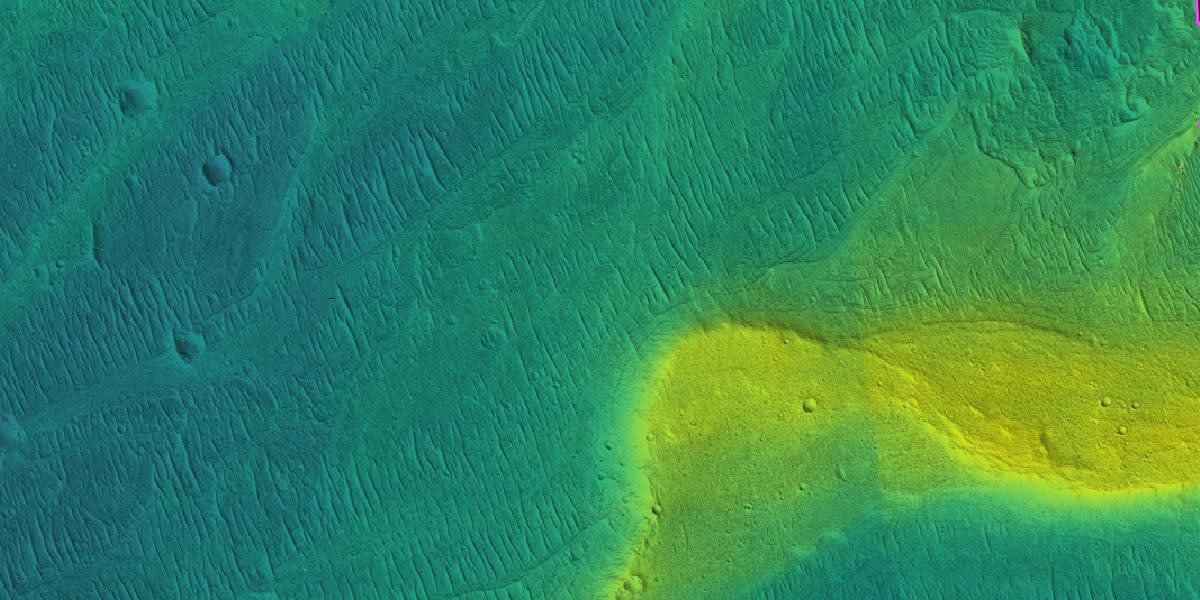Rivers Flowed Forth on Mars Until 1 Billion Years Ago

There was, and is, water on Mars. You've heard that one before, because scientists had suspected for a long time that rivers once ran on the Red Planet and confirmed that fact over the last 20 years. But a new study gives us a good answer to where, how, and when, and helps reconstruct the ancient climate of Mars.
In a paper published today in Science Advances, researchers took multiple angles of the same rivers gathered together by the Mars Reconnaissance Orbiter's HIRISE camera. They found wider rivers, some of which dried up in more arid times, that persisted on the surface until at least 1 billion years ago, late in the history of surface water on Mars.
"When (MRO takes) pictures of the same place from different angles, you can build a terrain model," lead author Edwin Kite of the University of Chicago says. Those terrain models look at how much things like craters have been eroded to determine age. This also tells a lot about the shape and depth of the river.
Kite and colleagues found a variety of ages for the rivers, which they judged based on the age of a given crater formation and how much an ancient river bed had eroded it, transporting sediment along the way. This means that there were rivers throughout Mars' history, rather than at certain moments, and that they survived even as shallow seas and lakes dried up. That lasted right up until the end of Mars' more wet era, which ended around a billion years ago.
Given that rivers appear and disappear throughout time (something that also happens on Earth), there were likely several weather-based drivers for this, including some snowfall, but also flows driven by intense rain. "It’s really hard to prove rainfall," Kite says. "One possibility is to look for fossilized rain splashes, which we haven’t found on Mars but have seen on Earth.
The Mars 2020 rover could be one way to explore a bit of ancient river history. Its landing location in Jezero Crater appears to be an ancient river delta feeding into the crater lake, and an abundance of transported sediments can likely be found at the site. However, this site isn't among the younger suspected rivers, likely coming from around 3.7 billion years ago. Gale Crater, explored by Curiosity, has a similar age and evidence of river flows.
Thus, a younger river landing site could someday provide more insight into the past weather, climate, and water history of Mars.
('You Might Also Like',)

